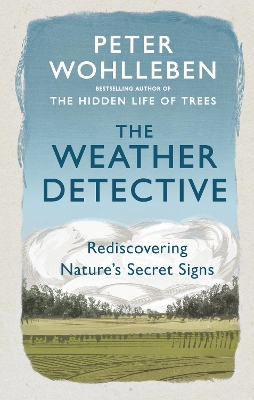Bestselling author of The Hidden Life of Trees, Peter Wohlleben, invites you to reconnect with nature
As soon as we step out of the door, nature surrounds. Thousands of small and large processes are taking place, details that are long often fascinating and beautiful. But we've long forgotten how to recognise them.
Peter Wohlleben, bestselling author of The Hidden Life of Trees, invites us to become an expert, to take a closer look and interpret the signs that clouds, wind, plants and animals convey. Chaffinches become weather prophets, bees are live thermometers, courgettes tell us the time.
The Weather Detective combines scientific research with charming anecdotes to explain the extraordinary cycles of life, death and regeneration that are evolving on our doorstep, bringing us closer to nature than ever before. A walk in the park will never be the same again.
